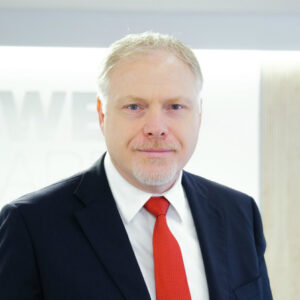
Interview with Massimo Milani
Engineering Business Unit Director
Innovation for Cefla > BU Engineering > Highlights
What sort of innovation is the Engineering BU developing most successfully?
“First of all, we should remember that the Engineering BU consists of three Business Lines: EPC Contracting for the management of complex large-scale works, Global Service, which performs production plant maintenance and facility management, and Energy for the construction and servicing of Fuel Cell, cogeneration and trigeneration power systems.
The EPC and Global Service areas are complementary and concern homogeneous business areas, while the Energy Business Line engages in the closely correlated fields of both construction and maintenance. Each Business Line takes a different approach to innovation.
For Energy area, innovation means presenting its added value in the form of different formulas that meet market needs. This is done by producing systems that generate electricity from fossil or renewable/alternative sources.
Our socio-economic circumstances mean energy production is vital for everyone: here, innovation consists of discovering new formulas and processes that can generate electricity in ways that increasingly respond to market needs. That means focusing on sustainability and low emissions so that the economy can move towards carbon neutrality as required by EU development plans and the national Recovery and Resilience Plan).
It is, therefore, necessary to identify electricity-generating products and tools capable of replacing traditional systems like cogeneration. It’s vital to understand the new technologies entering the market and integrate them with the components and products that most closely align with future market requirements.
For example, FUEL CELL technology is decidedly future-focused as it delivers energy with low carbon emissions. Such cells convert the chemical energy of the fuels into electricity and heat, but without any combustion as occurs with traditional cogeneration.
In the Global Service area, instead, innovation consists of offering customers services that match their requirements; this is also done by trying to understand their latent needs. All this requires in-depth studies and considerable technical preparation.
This area sees us making ever-greater use of AI through interpretive software, which allows us to provide services in line with customers’ needs. However, because these interactive methods are new, they also require detailed explanation on our part: this lets us carry forwards innovation that is more service-focused than product-related, proposing new processes and taking a fresh approach to customers.
In the EPC (Engineering, Procurement and Construction) area we work alongside customers to enhance their plants and facilities. By ensuring they’re managed effectively, we deliver major economic savings and environmental safeguards, with direct benefits for end users.”
How does the market benefit?
“Generally, our differentiated services, solutions and management provide the market with similar, clear-cut advantages across all Business Lines: we provide people with improved comfort while significantly reducing pollutant emissions. This results in carbon footprint/energy certification for customers and yields considerable economic savings on the process management side.
Corporate reliability and credibility are valuable assets when approaching customers. To sell, it’s not enough simply to state what one has already done: since we offer tailor-made solutions, it’s also necessary to build up a picture of “how it was done” and the role our experience played. It is, then, crucial to make the most of the thus-gained experience and proactively show how it can be applied to future projects.”
Have we set a market trend with this innovation?
“Some initiatives are truly pioneering for the Italian market. Fuel Cells are a case in point. We first explored the opportunities they offer about a year and a half ago, carefully examining trends and benefits and taking on best practices. Foreign markets already have thousands of Megawatts installed, with more than 10 years of expansion underscoring their reliability.
At present, Italy has installed two plants, both of them in Emilia Romagna. One is at the Ferrari plant, the other in our own factory in via Bicocca, Imola. The latter is the first-ever CHP (Combined Heat and Power) solution and allows for the retrieval of waste heat.
At present, there are no competitors engaging in this business (although some have actually asked us to formulate partnerships with them to become distributors of this technology).
Beyond Italy, instead, in the USA and South Korea, thousands of fuel cell Megawatts are already installed and the technology has already been in use for more than 10 years, testifying to its reliability.
In the Global Service and Energy Business Lines we’ve designed and tested Artificial Intelligence that delivers excellent savings (the AI pays for itself in just 6 months): the software analyses the system and computes how to optimise resources, with savings of up to 20-25%.
The software was developed together with MIPU, a partner of the Engineering BU that focuses on digitalization to provide customers with cutting-edge AI, energy management and predictive maintenance solutions. Via the IoT, in fact, every object in the industrial plant has its own identity in the digital world and can provide maintenance services with crucial performance info. All process design/engineering thus passes through a set of interconnected digital sensors that transmit data to cloud-based platforms which, in turn, communicate with both Cefla’s and the customer’s systems.”
Is sustainability innovation?
“It’s compulsory innovation: when managing plants that are normally CO2 emitters, failure to find ways of cutting emissions will inevitably lead to obsolescence.
Sustainability is also related to our company’s positioning, which always has innovation in mind as it’s a must if we’re to stay competitive.
In recent years there’s been a steadily maturing awareness of the need to control energy consumption. Today, in fact, the aim is to obtain – comfort levels remaining equal – economic savings while lowering emissions.
Sustainability also stems from expertise: understanding needs to be passed on, together with the relative skills and know-how.”


